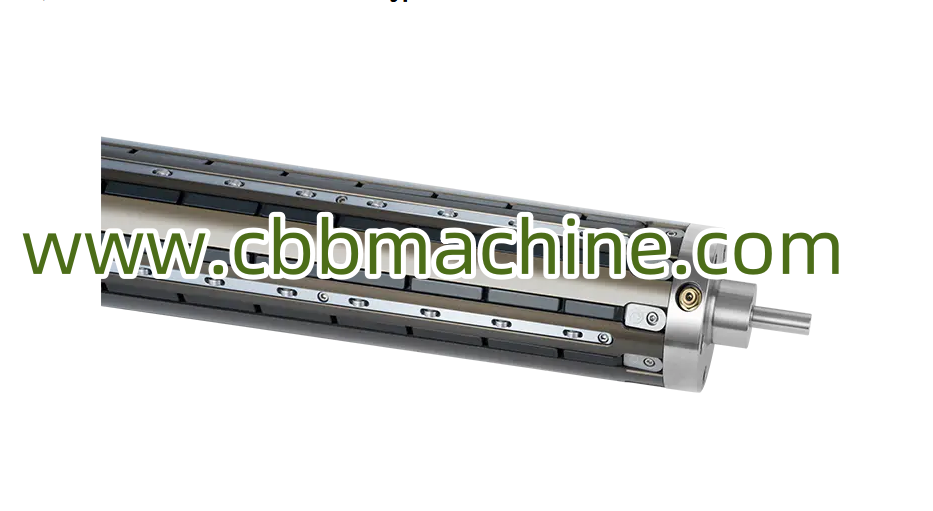Aluminum Roller: A Key Component for Smooth Industrial Operations
An Aluminum Roller is a fundamental component in a wide range of industrial machinery, offering durability, lightweight construction, and corrosion resistance. These rollers are widely used in packaging, printing, laminating, textile, and paper industries, among others. Due to the versatility of aluminum as a material, the roller plays a critical role in ensuring seamless operations, reduced wear on other components, and improved system efficiency.
Aluminum rollers are typically manufactured from high-grade aluminum alloy, which offers an excellent strength-to-weight ratio. This makes them suitable for high-speed machinery where minimizing weight without sacrificing strength is essential. The reduced mass of the roller helps machines run faster and more efficiently while reducing strain on drive motors and mechanical systems.
One of the key benefits of using an aluminum roller is its resistance to corrosion. Unlike steel, aluminum naturally forms a protective oxide layer that helps prevent rust and deterioration, even in environments with exposure to moisture or chemicals. This makes aluminum rollers a preferred option in industries where cleanliness and hygiene are critical, such as food processing or pharmaceutical manufacturing.
In addition to their corrosion-resistant properties, aluminum rollers are also known for their thermal conductivity. In processes that involve heat transfer—such as lamination or heat-setting—the roller's ability to distribute heat evenly can improve product quality and consistency. This is especially important in applications where surface temperature plays a role in material bonding or curing.
The surface finish of an aluminum roller can be customized to suit specific applications. Options such as hard anodizing, rubber coating, or grooving are available depending on the roller’s intended use. Hard-anodized rollers offer increased surface hardness and abrasion resistance, while rubber-coated versions provide better grip or cushioning for delicate materials.
Precision engineering is essential for aluminum roller manufacturing. Rollers must be perfectly balanced to prevent vibrations that can cause wear or affect product quality. High-precision machining ensures that the roller maintains consistent diameter and straightness, even under load and continuous operation. Some rollers are dynamically balanced to accommodate extremely high rotation speeds without deviation.
For industries that require customization, aluminum rollers can be made in a variety of diameters, lengths, and surface patterns. Whether for guiding, conveying, or pressing materials, manufacturers often need specific configurations to meet their operational requirements. A well-designed roller can minimize friction, support uniform tension, and help maintain the alignment of web materials.
In maintenance and long-term cost analysis, aluminum rollers offer strong advantages. They are generally easier to handle than heavier metal alternatives, reducing risks during installation and servicing. Furthermore, since they are resistant to many forms of mechanical and chemical wear, they often require fewer replacements, contributing to lower downtime and increased productivity.
Technological advancements in CNC machining and surface treatment have further enhanced the quality and consistency of aluminum rollers. Many modern rollers now incorporate advanced coatings or internal cooling systems to meet more complex industrial demands. These features can provide better control over production variables and extend equipment lifespan.
Moreover, the eco-friendliness of aluminum adds to its value in industrial settings. Being highly recyclable, aluminum allows manufacturers to support sustainability goals by reducing material waste and energy consumption associated with raw material extraction. Using aluminum rollers aligns well with modern environmental and efficiency standards.
As industries evolve and seek faster, safer, and cleaner production methods, the aluminum roller remains a staple in machine design. Its combination of strength, low weight, and adaptability makes it suitable for both legacy systems and cutting-edge production lines. By investing in high-quality rollers tailored to specific industrial tasks, businesses can enhance product consistency, reduce energy use, and maintain stable operations over time.
Whether used in guiding flexible films, pressing delicate textiles, or supporting heavy paper rolls, aluminum rollers provide the reliability and precision today’s industries demand. Their role, though often overlooked, is central to maintaining the smooth operation of countless manufacturing processes.


